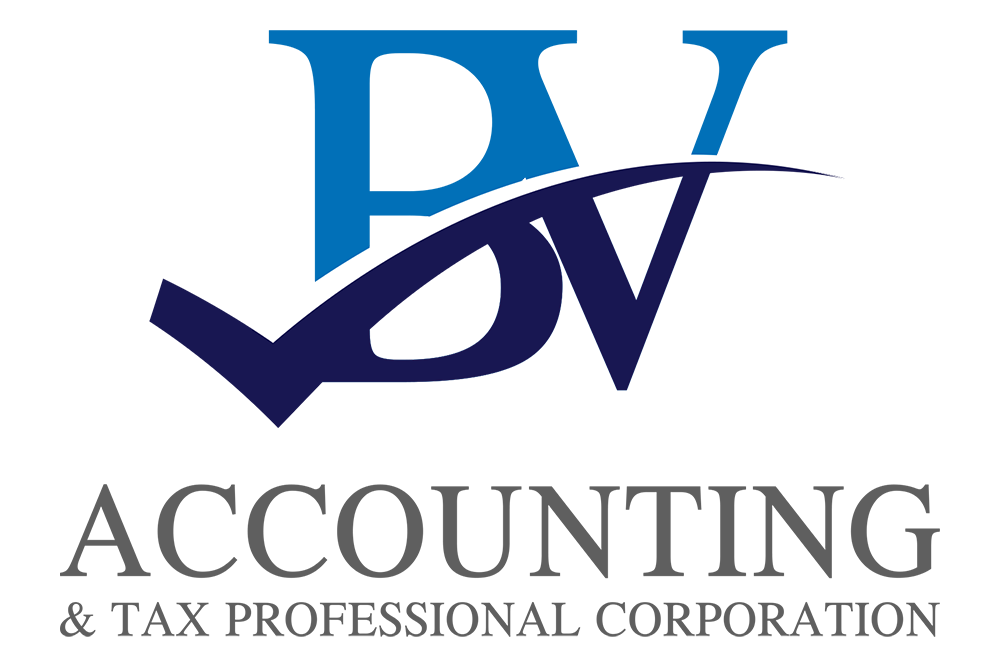Taking Care of Business.
We know how hard it is for small businesses to keep track of their receipts and to organize them in a way that is suitable for the government. Any entrepreneur’s target is to maximize on sales and expand their business; therefore they may not have enough time to take care of their accounting and tax problems. But then again, timely payment of taxes is a necessity with each business that should never be avoided at any cost. BV Accounting & Tax Professional Corporation will always keep you informed about the latest tax issues and all news and updates related to accounting and bookkeeping.
Our Accounting services include:
- Personal & Corporate Tax Planning
- Business Plan Preparation
- Monthly-Year End Accounting
- Bookkeeping
- Business Registrations
- Personal & Corporate Income Tax Returns
- Financial Statements
- HST Returns
- WSIB, Payroll and all related slips
- “Notice to Readers” preparation for financial statements
Find out how we can help get your business bookkeeping back on track.
Running a business in Canada gives you a whole new world of potential tax deductions you can use to reduce your year end income tax, or even perhaps, to get a tax refund. But are you truly getting to benefit from all the tax deductions you could be writing off against your business income? Contact us to find out what tax deductions you may be overlooking!
Small Business Tax Tips.
Small Businesses have a chance to save big! When you are self-employed or own a small business, it presents some unique and significant opportunities to save big bucks on taxes and keep the taxman at a distance from your money. Here is how you can cut on your taxes and increase your wealth:
Share Half the Income with your better half: Canada has a progressive tax system. Higher your income, higher your marginal tax rate. The income splitting can be an exceptional strategy to significantly lower your taxes. Income splitting can be done in the following ways:
• Employing Family members: Small business owners have the opportunity to employ a family member like their spouse or child to help with the daily operations of their business. This allows them to disperse the income among family members which in turn reduces the marginal tax rate for the small business owner while the family members are taxed at lower tax rate too.
• Family Tax Cut: For the 2014 and 2015 tax years, if an individual is married with a child under 18 years of age , he may be able to save up to $2000 in taxes by splitting income with the spouse, referred to as the Family Tax Cut.
Filing on Time is the Right Time: When is the right time to file your taxes? The simple answer is “before the deadline”. A lot of people do not file their taxes because they know they would owe to the government upon filing their taxes. The truth is that you can always make an arrangement with the government for your tax owing but by not filing taxes on time, you are attracting heavy penalties. Every year thousands of taxpayers pay millions of dollars in penalties and interest for not filing taxes on time.
Healthy Insurance Saves you Tax Dollars: A self-employed individual may be able to deduct for personal and family health and dental insurance premiums. Deducting these premiums as a business expense may deliver a better tax benefit than claiming them as a medical expense.
Nothing Beats Perfection: The expenses that are claimed by a self-employed individual is the trickiest part of the whole process. It should be ensured that all claims are fully backed with receipts and proof of payments. It is always recommended to take professional bookkeeping and accounting help to accurately keep track of the claimable expenses.
Save Tax while you Insure your future earnings: Starting 2011, self-employed Canadians have the option to access EI benefits in four categories – maternity, parental, sickness, and compassionate care benefits. Twelve months of EI premiums must be made in order to qualify for any benefits. EI premiums paid are tax deductible and give the self-employed individuals especially contractors an exceptional opportunity to ensure a regular flow of income and minimize their risks in case they are unable to work at some time in the future.
Divorcing Your Company: When incorporating, a small business owner divorces their company. Any bank accounts and assets of the company need to be transferred to the incorporation. The owner is then classified as an employee of the incorporation and can no longer use the assets for personal use. To ensure a proper handling of assets, it is advised that anyone considering incorporation should speak to a professional to prevent any future tax consequence.
